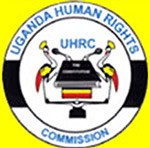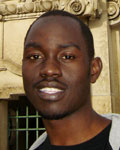UHRC calls for self-regulation of the media

The Uganda Human Rights Commission (UHRC), the organisation which protects and promotes citizens human rights as guaranteed by the constitution, says it's important that the government supports the media to strengthen their self-regulation mechanism in accordance with the principles of freedom of expression, so that the level of professionalism in the media in Uganda can be raised and maintained, as opposed to being subjected to a new set of rules which were proposed in the Press and Journalist (Amendment) Bill 2010.
Strengthening self-regulation
"The Ministry of Information and National Guidance and the Office of the Prime Minister should support the media practitioners' mechanism of self-regulation that is already in place as a way of enforcing high ethical and professional standards," UHRC says in the 14th Annual Report 2011 which was released in Kampala on Monday, 30 April 2012.
Through the proposed bill the government intends to give the minister of information the power to appoint the chairperson of the independent media council; and creating new criminal offences relating to the publication of information prejudicial to national security, public morality and economic interests of the country.
However, media practitioners and owners are concerned that the said "information" is not defined therefore the provisions could be abused to the disadvantage of the media.
Government argues that media abuses freedom
To amend, the Press and Journalists Statute, the government argued that media were overstepping their limit and abusing their freedoms by acting irresponsibly and therefore needed to be brought to order.
The new report also notes that in 2011, there was a growing concern about the irresponsibility of journalists, corruption, extortion and abuse of the power of the pen by practitioners. This is mainly due to capacity gaps in terms of training, facilitation at work and lack of awareness about human rights.
"The UHRC noted that there were a number of cases where journalists erred genuinely and media outlets made unsolicited apologies. However, there were also cases of outright bribery and inducement to either publish favourable stories or "kill" damaging stories even when they were factual or had the potential to avert human rights violation," the report reads in part.
It adds that most of the cases didn't come out in public, however, one such case was that of November 2010, when four journalists were arrested and some paraded on television for allegedly attempting to extort UGX50 million from the permanent secretary of the Ministry of Works.
Media could be in the best position
Despite the weakness, the UHRC argues that media through the Independent Media Council of Uganda is in the best position to enforce the professional and ethical conduct of media practitioners and not the government.
The position is based on the Banjul Declaration of Principles of Freedom of Expression in Africa which confirmed that self-regulation was the best means of enforcing professionalism in the media as opposed to statutory regulation.
"This is because the governments had failed to put in place regulatory bodies that were independent and adequately protected against political and economic interference," UHRC says in the 192-page report.
A lack of support
But in countries like Uganda, the Independent Media Council has not been proactive because it has lacked support from its main stakeholders; the media houses, journalists and the government which has left it vulnerable to disregard. To make it more effective, the activists believe it's important for the organisation to get the support it deserves from government and the media.
Besides the touchy issue of media regulation, the new UHRC report also notes that in 2011, journalists lacked safety and protection mechanisms especially for reporters who covered the opposition led 'Walk-To-Work' demonstrations and other dangerous protests during the year. "This put the journalists' lives at risk and deprived them of the right to work under satisfactory safe and healthy conditions."
UHRC also documented the continued interference in editorial independence of media houses by owners of private firms, especially during elections. In extreme cases, the report says, proprietors prevented staff of their radio or television stations and newspapers, from covering or hosting guests that were deemed to subscribe to political ideology that was different from their own or from those politician s that had their sympathy. As such, readers, listeners and viewers were denied the right to information that was balanced and empowering to them to make informed choices."












